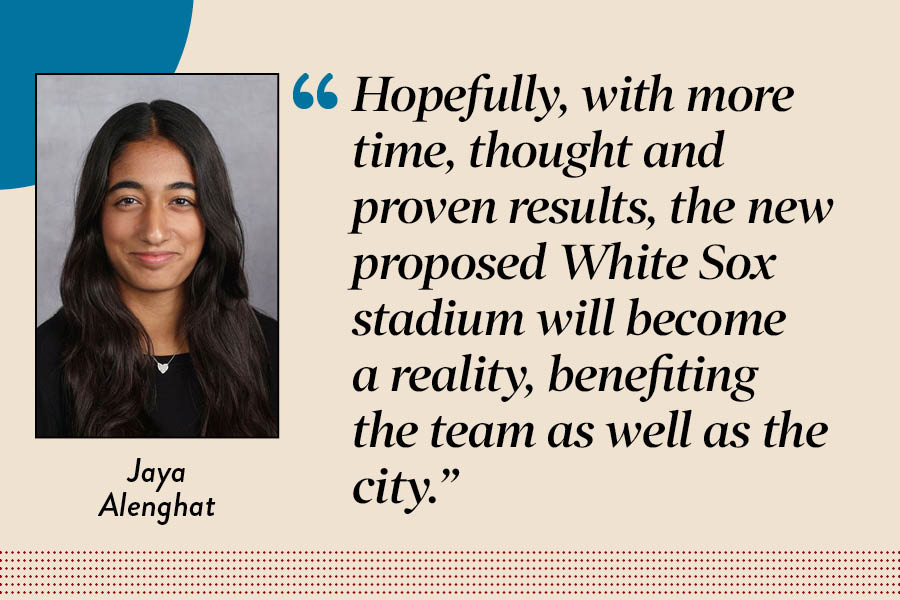Imagine this: The empty 62-acre plot of land in Chicago’s South Loop, known as “The 78,” transformed into a bustling, lively neighborhood — all centered around a new White Sox ballpark. Just south of Roosevelt Road and the Chicago River, fans can travel to the stadium via numerous CTA lines or water taxis along the river, arriving to watch the White Sox compete in their brand-new stadium.
The vision is clear.
However, this dream ballpark would not come without a financial cost. White Sox owner Jerry Reinsdorf has asked taxpayers for about $1 billion to finance the proposed stadium. Now, the question remains: Should public funds be used for this new stadium?
While the White Sox’s proposal seems like it would reap great benefits not only for the team but also for the city, the long-term economic profits for the city must be guaranteed and statistically proven before spending large amounts of taxpayer dollars on a project that is not a necessity for the City of Chicago. The team’s current lease at state-owned Guaranteed Rate Field expires in 2029.
In an interview with Greg Hinz of Crain’s Chicago Business, Mr. Reinsdorf made the bold claim that this new stadium would be necessary in keeping the White Sox in Chicago. Mr. Reinsdorf, 88, said that after his death, his son, Michael Reinsdorf, would have to do what is best for the team — meaning, relocating it.
A new South Loop stadium would conceivably publicize the team, placing them in a neighborhood surrounded by an active city life rather than parking lots, and it would help develop the South Loop area, forcing fans to travel to games using public transportation rather than simply parking — encouraging them to spend time in the vibrant neighborhood before and after. This would increase the team’s revenue along with benefiting the city.
On Feb. 26 Illinois Gov. J.B. Pritzker said funding for a new stadium would not be a priority for public funds, which he said should be put toward more urgent city priorities. He reasonably expressed his concern that the taxpayer dollars have not been guaranteed a return on investment, and he is therefore hesitant to immediately support this new project.
This hesitancy is rational. What would that say about the City of Chicago if the governor quickly approved the spending of public funds on a stadium rather than more pressing needs? While, yes, the White Sox and the city would most likely benefit from the project, the state cannot place precious taxpayer dollars into such an early proposal, of which the future is unknown.
Theoretically, investing in the construction of a new stadium would both save the White Sox and benefit Chicago. Nevertheless, the city is making the right move in not immediately deciding to place its valuable finances in a stadium. Hopefully, with more time, thought and proven results, the new proposed White Sox stadium will become a reality, benefiting the team as well as the city.






















































